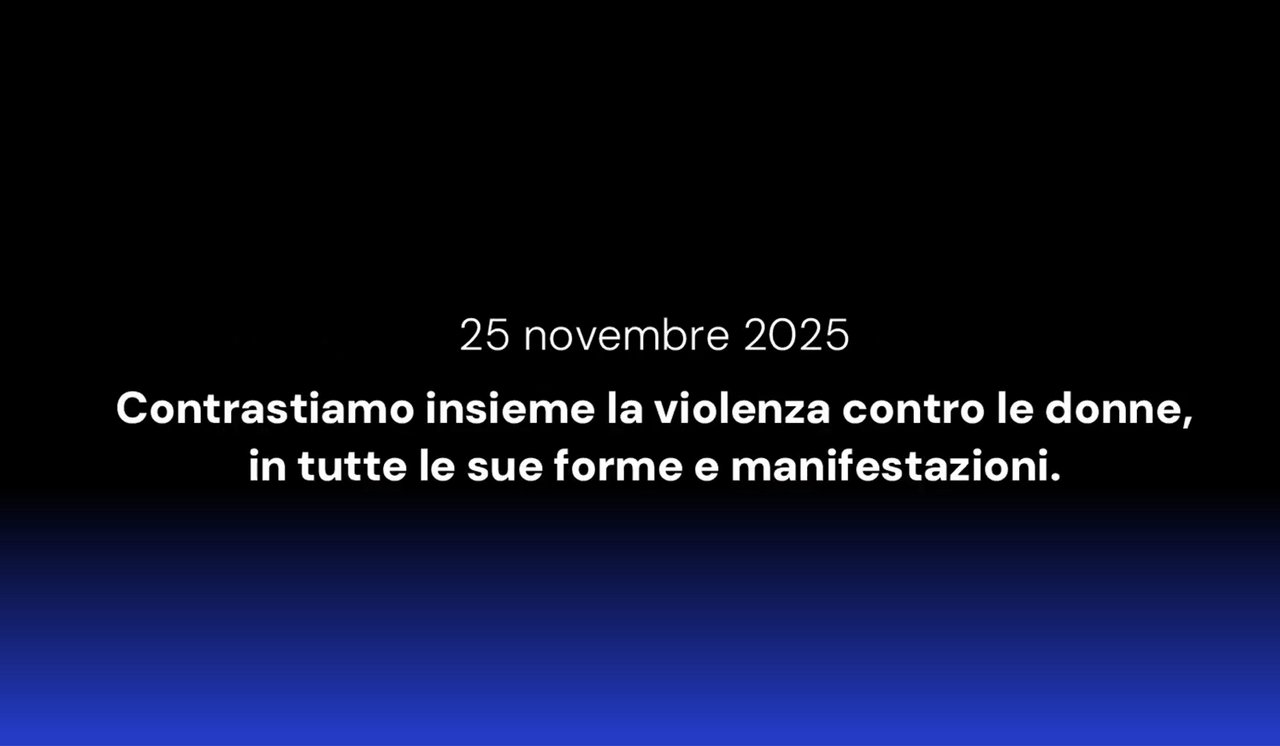November 25, 2025
Together against violence towards women
The campaign against the deepnude phenomenon, promoted by the Politecnico di Milano on the occasion of the International Day for the Elimination of Violence against Women, aims to open spaces for awareness and discussion within the university community.
Widespread across the Leonardo, Bovisa Durando, and La Masa campuses, the initiative seeks to foster dialogue on the issue of deepnude, to raise awareness of this form of violence — most often directed at women — and to encourage the ethical, responsible, and respectful use of artificial intelligence.
November 25 is a symbolic date that calls for a constant and collective commitment — one that cannot be limited to a single day. In this perspective, a group of students from the Communication Design degree programme took part in a months-long process of research and awareness-building, which led to the creation of this communication campaign shared with the entire community.
Gender-based violence
The term gender-based violence refers to all forms of violence that occur “as a result of normative role expectations associated with each gender and unequal power relations between the sexes” (Bloom, 2008). In most cases, this violence is perpetrated by men against women and girls — a reality so widespread that it has been described as a form of “ordinary violence” (Crenshaw, 1991).
In Italy, according to data published by the Ministry of Health, 31.5% of women have experienced at least one form of physical or sexual violence during their lifetime — not including psychological violence or stalking. The different forms of violence — physical, sexual, psychological, economic, and others — find their most extreme expression in femicide, the ultimate consequence of a deeply rooted system of inequality.
According to data from the Non Una di Meno National Observatory, as of 2025, there have been 82 deaths caused by gender-based and heterocispatriarchal violence. In 2024, there were 115 femicides, with over 50 documented attempts.
Cyberviolence
The digital dimension further exacerbates this situation. Cyberviolence includes any aggressive, harassing, or abusive behaviour carried out through digital means - the internet, social media, or messaging platforms. Its main forms include cyberstalking, revenge porn, sexting coercion, and doxing - phenomena that are increasingly widespread due to the accessibility and growth of artificial intelligence technologies.
The deepnude phenomenon
Within this context, deepnude represents one of the most recent and severe forms of gender-based cyberviolence. It involves the creation, through artificial intelligence tools, of digitally “undressed” images of people without their consent.
In 99% of cases, the victims are women and girls (Sensity.ai, 2024). This data confirms that such practices constitute a deep violation of women’s freedom, safety, and dignity. These fake images - often shared on social media or messaging platforms - cause tangible harm, including isolation, fear, job loss, anxiety, and depression.
Reflecting on the phenomenon
Addressing this issue means critically questioning the use of technology and its social consequences - particularly within the context of the Politecnico di Milano, where future designers, developers, and users of artificial intelligence are being trained.
In an environment grounded in research and innovation, it is essential to also promote ethical and responsible reflection on the impact of technological tools. The deepnude phenomenon is a concrete example of the distorted and unethical use of technology, resulting in a genuine form of gender-based violence.
Finding support
If you are experiencing stalking, verbal, psychological, or physical violence, you can call 1522 for help. You can also contact one of the anti-violence centers across Italy, where you will find listening, concrete support, and practical advice. In addition, you can reach out to the Polimi support desk at: stalkingsos@polimi.it
Campaign developed within the Final Synthesis Studio, section C2 // Bachelor’s Degree in Communication Design // School of Design, Politecnico di Milano // Academic Year 2024–2025 // Faculty: V. Bucchetti, F. Casnati, U. Tolino, P. Visconti // Teaching Assistants: A. D’Alessandro, A. Polerà.
Campaign designed by Morena Canevari, Martina Caspani, Elisa Guerra, Chiara Poltresi, Matteo Terraneo.
Campaign coordination: Francesca Casnati

